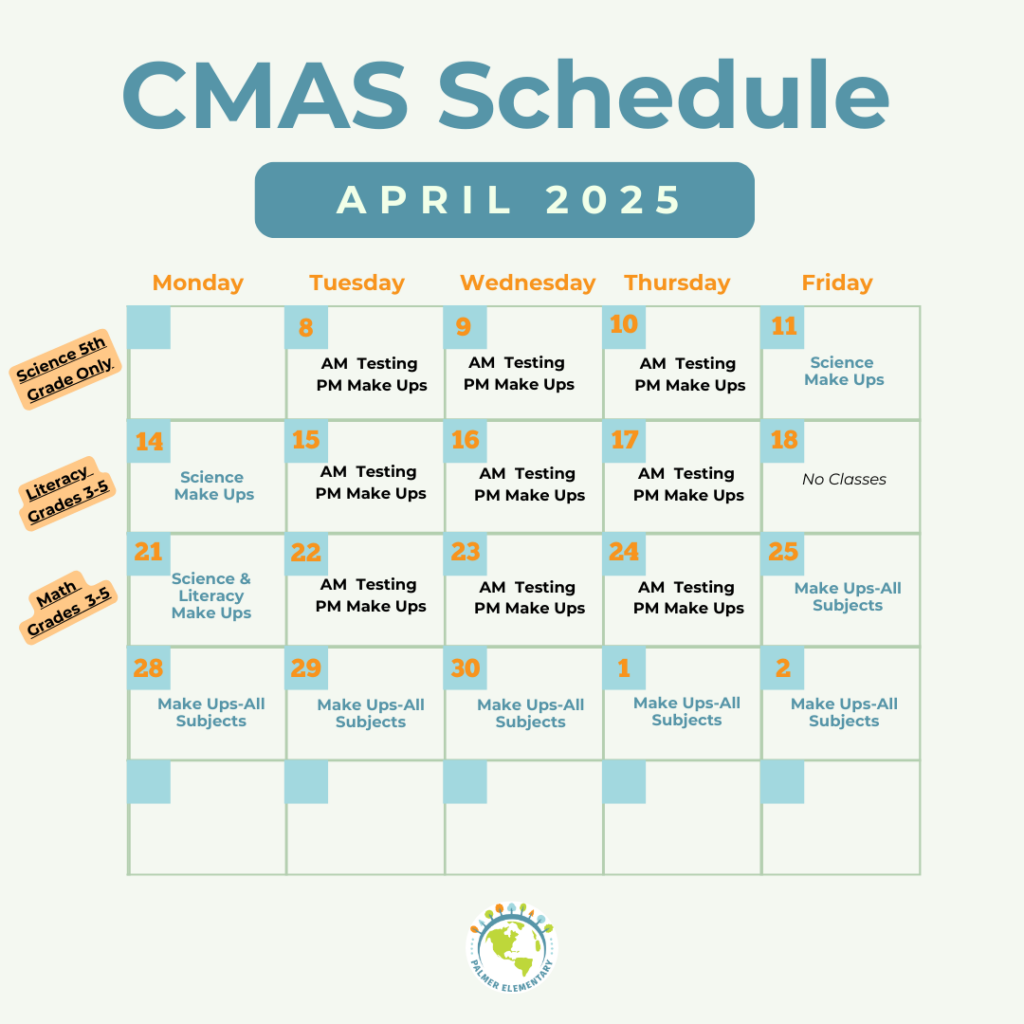Posted April 8, 2025

Ideas to support your students through CMAS testing
Set them up for success
We want our kids to feel their best on test day – full of energy, well rested and able to concentrate. These conditions improve the likelihood that they will have a positive experience and will feel more confident. There are a few simple things we can do to help:
• Ensure they get enough sleep the night before
• Get lots of healthy, nourishing food into them before their test
• Ensure they are getting plenty of exercise – this is good for the body and the mind
• Keep screen time to a minimum as this can be overstimulating for kids and affect their concentration and attention
• Keep schedules and routines as close to regular as possible to provide a sense of security and familiarity in the lead up to the test
• Avoid putting too much pressure on your child to perform or on test outcomes
• Encourage plenty of rest, play and connection with others
• Be present and available for your child to bring any questions or concerns to should they need to
Teach calming strategies
High levels of test anxiety in kids will affect their performance on the test and cause them to have a negative experience. We need to be cautious in our approach here – while we certainly don’t want to focus too much on the outcome of the test, we do want to ensure a child has a positive experience. And repeatedly experiencing anxiety in a test taking situation that then causes them to perform poorly, will reinforce their negative beliefs around tests.
So we want to make the test as positive an experience for our child as we can. We do that by giving them strategies to remain calm when they’re in a testing situation, so they can feel confident and in control. Here are 3 strategies to try with your child:
• Deep breathing – Inhale through the nose and fill the belly with air, counting to three. Then exhale slowly and steadily through the mouth, emptying the belly again, while counting to four.
• Grounding – Have them look around the room and name 5 things they can see, 4 things they can hear, 3 things they can touch, 2 things they can smell, and 1 thing they can taste.
• Visualization – Ask them to imagine they are somewhere calm and relaxing. A place where they feel happy and at ease.
Teach Positive Self-Talk
If you have heard your child call themselves “stupid,” say they are “just going to fail,” or put themselves down in the weeks leading up to an exam, it’s time to step in. Teach your child to use affirmations, or positive self-talk, to turn their thinking around from debilitating negative thoughts. StressFreeKids.com offers these examples of affirmations for kids to repeat in their heads while taking deep breaths before and during tests:
• “I am calm, focused, and smart.”
• “I calmly trust my knowledge.”
• “I am doing the best I can, and my best is terrific.”
• “When angry or stressed, I take deep, slow breaths.”
• “I remember to breathe deeply during my tests.”
• “Breathing deeply brings more oxygen to my brain.”
• “Being calm helps me to remember more.”
• “I have enough time.”
• “My teacher and I have been working hard all year and I am prepared.”
Reframe unhelpful thinking
This is about shifting a child’s perspective around the value and importance of a test, as well as the importance of their performance on that test and what it means about them as a person. It is easy for all of us, not just kids, to overemphasise the importance of a test. We want them to perform well and they want to make us proud. Our children love us and want to please us, and sometimes this is exactly what causes their anxiety.
Yes, school is important. But so is their mental health. Yes, we want our children to try their best. But not to their detriment. So let’s keep things in perspective. This one test will not make or break their future. This one test is not a measure of their intelligence. This one test is not a measure of their worth as a person.
You will love and be proud of your child regardless of how they perform on a test. Their value is not determined by a test score. It helps to make sure they know this, even if you think they already know!!
**Resources summarized from Child Mind Institute
https://childmind.org